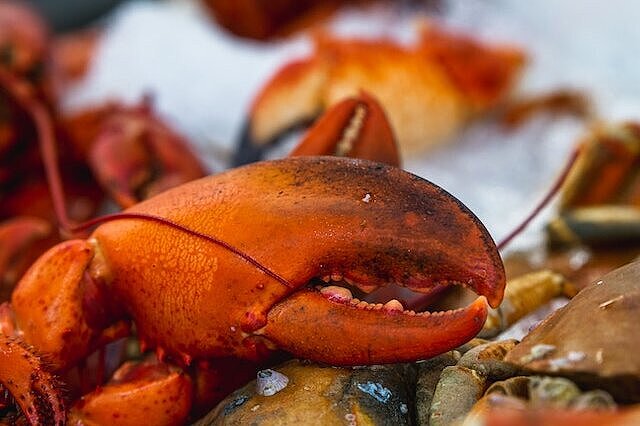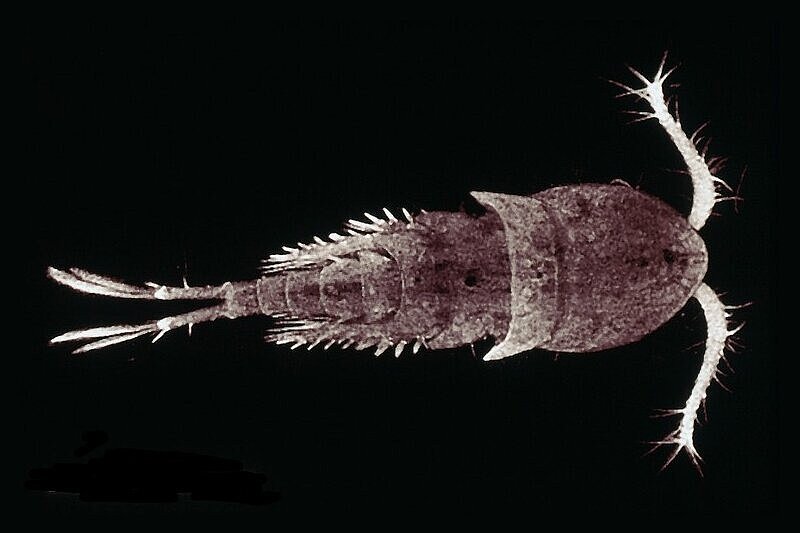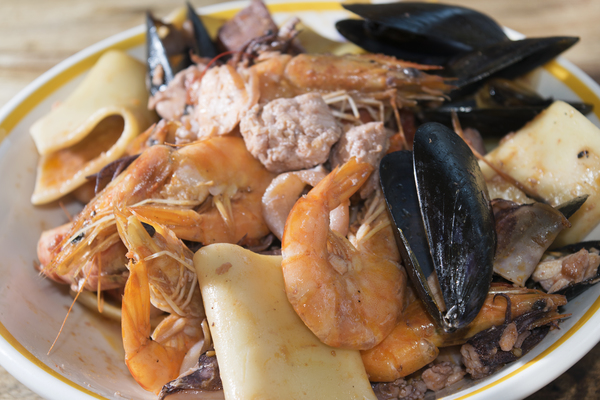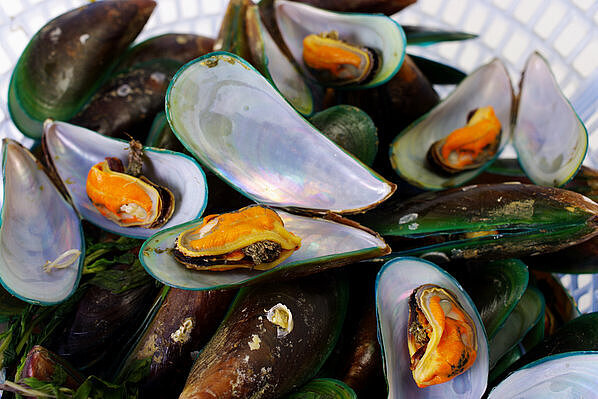Crustacean meat
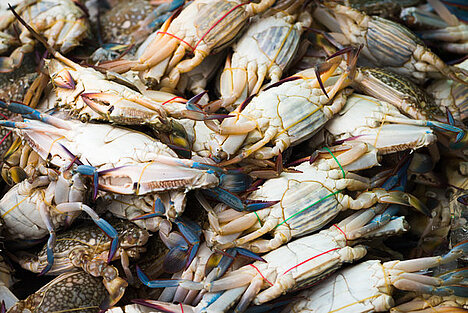
Crustacean meat is a popular ingredient in many dog food products and snacks. But what exactly is crustacean meat and how healthy is it for your dog? In this article, you can find out more about the origin, ingredients and advantages and disadvantages of crustacean meat for dogs.
What is crustacean meat?
Crustacean meat is the collective term for the meat of various types of crustaceans, such as crabs, prawns, lobsters or langoustines. Crustaceans are invertebrates and live in water. They have a hard shell that protects them from predators and claws or antennae with which they can grasp or feel their food.
How is crustacean meat for dogs processed?
Crustacean meat for dogs is usually cooked or dried before it is processed into food or snacks. Often only certain parts of the crustacean are used, such as the tail meat or the claws. Sometimes the whole animal is chopped up and processed into a meal, which is then used as a source of protein in other products.
What ingredients does crustacean meat contain?
Crustacean meat is rich in high-quality protein, which is important for your dog's muscle building and cell renewal. It also contains many essential amino acids that your dog cannot produce himself and must therefore obtain from his food. Crustacean meat is also a good source of omega-3 fatty acids, which have an anti-inflammatory effect and can promote heart health. In addition, crustacean meat provides important minerals such as calcium, phosphorus, iron and zinc, as well as vitamins such as B12, A and D.
What are the benefits of crustacean meat for dogs?
Crustacean meat can offer your dog many health benefits if it is fed in moderation. On the one hand, it can strengthen the body's defenses and support the immune system. On the other hand, it can improve skin and coat health and prevent skin problems such as itching or dandruff. It can also aid digestion and stimulate the metabolism. Last but not least, crustacean meat can also satisfy your dog's sense of taste and offer him variety in his bowl.
What are the disadvantages of crustacean meat for dogs?
Crustacean meat also has some disadvantages that you should be aware of before feeding it to your dog. For one thing, it can trigger allergies or intolerances if your dog is sensitive to certain proteins. Secondly, it can contain too much iodine, which can lead to hyperthyroidism. It can also contain too much salt, which can increase blood pressure and put a strain on the kidneys. You should therefore always make sure that you only buy high-quality crustacean meat that does not contain any artificial additives or preservatives.
How much crustacean meat can my dog eat?
The amount of crustacean meat you can feed your dog depends on various factors, such as his age, size, weight and activity level. In general, however, crustacean meat should only be used as a supplement to a balanced diet and should not make up more than 10% of their daily calorie intake.
Crustacean meat is a tasty and nutritious ingredient for dogs that can have many health benefits. However, it should only be fed in moderation and not as a main part of the diet. If you pay attention to the quality and origin of the crustacean meat and take your dog's individual needs into account, you can offer them a tasty change.
Properties 5
Are you looking for other ingredients with a specific property?
Just click on them to find more.
If you notice any signs of hypersensitivity or poisoning in your dog, you should see your vet immediately. We are not a substitute for a vet, but we try to be as accurate as possible. Every dog reacts differently and we recommend you get a second opinion or consult your vet if in doubt.
Stay healthy and take good care of your four-legged friend!😊
Similar to Crustacean meat
Crustaceans contain many valuable nutrients for dogs, such as Protein : crustaceans are a good source of high quality animal protein, which is important for muscle building and cell...
Copepoda are small crustaceans that grow to between 0.2 and 2 mm in size. The largest species, Pennella balaenoptera, can even grow up to 32 cm long, but is a parasite on whales. Most copepods live...
Molluscs and crustaceans have many benefits for your dog's health. They are rich in protein, which is important for muscle building and cell regeneration. They also contain many minerals such as...
Mussel meat is the soft tissue that lives inside mussels. There are many different types of mussels that can be used as food, such as mussels, oysters or scallops. Mussel meat contains a lot of...
